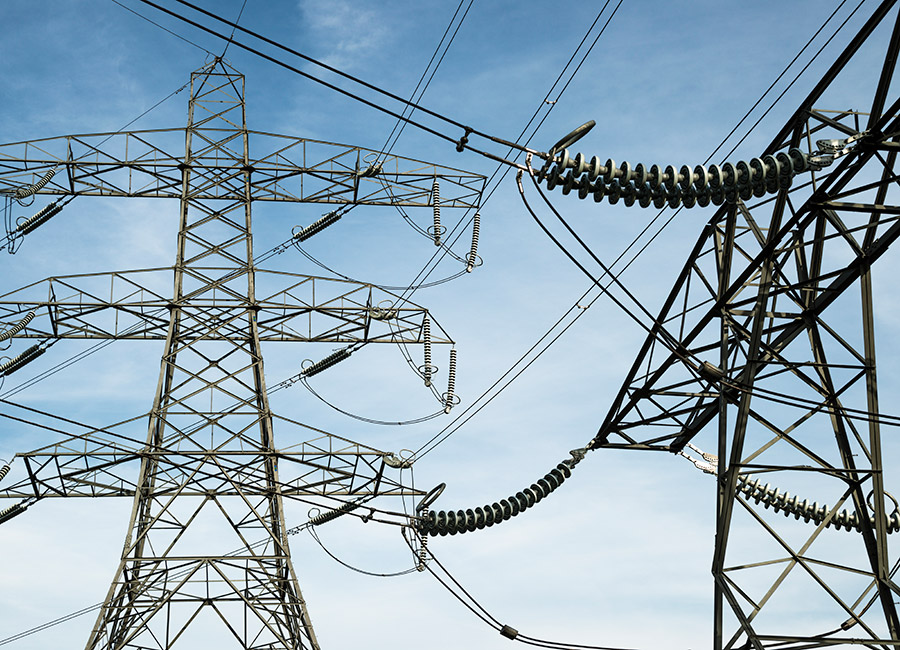The ESB has been hit with more than €55m in penalties for leaving customers without power over the last five years, writes Valerie Hanley.
And its performance has been so poor, the energy regulator confirmed a new get-tough approach with the semistate company.
Up to 395,000 families were left in the dark in the wake of Storm Darragh earlier this month.
But the multi-million euro fines of the ESB, every year since 2019, were not for blackouts caused by storms or poor weather conditions, but by faults in their own system.
However, the company - whose CEO Paddy Hayes enjoys a basic salary of €318,000 - refused to provide figures for how many outages its 2.2m customers have endured in recent years. They were also unable to provide a breakdown of where these outages occurred.
This information is freely available in other countries such as the UK, where regular updates detail the number of households impacted by power cuts, and the faults per kilometre of power lines.
The Consumer Association of Ireland (CAI) criticised the ESB's failure to provide figures for the level of outages impacting customers, describing it as a "cover-up".
CAI Chairman Michael Kilcoyne said: "I'm really concerned about the service that they give to consumers and, in my view, in relation to their failure to provide answers.
"This is clearly because the service they are giving is poor and that's why it's being covered up.
"Because if the service was good, they would give it fairly fast, and you wouldn't have to look for it because they would be sending out press releases about it."
Opposition leader Peadar Tóibín said the lack of data provided by the ESB is "incredible".
The Aontú leader said: "Given the precarious state of the Irish electricity market and how close, we are told, the State is to capacity consumption of electricity, it is incredible that there is so little detail available from ESB Networks as to their performance.
"It is clear many customers are suffering unplanned outages but it's virtually impossible to understand what is really happening."
The Meath West TD added: "This is not good enough. There is a complete lack of accountability here.
"This semi-state is providing so little information as to what is happening that are in effect protecting themselves from scrutiny. The performance of semi states should be transparent, especially when it comes to critical service provision such as electricity.
"It is impossible to detail how many individual domestic or business customers have suffered unplanned or planned outages each year. There is no detail of the costs that these outages inflicted on these customers.
"There is no detail as to the causes of each of these outages."
The Commission for Regulating Utilities (CRU) said the ESB is not required to provide detailed information about power cuts.
However, the regulator revealed this could change, and that the ESB may soon be obliged to provide detailed facts and figures about outages impacting customers.
A CRU spokeswoman said: "As such, ESB Networks are currently not required to retain the data for customer numbers, locations and dates of outages, but this may be available through their own publicly available reports.
"The Price Review process is currently underway, which will set the level of information requirements and performance levels for ESB over the coming five-year period," the spokeswoman said.
"It is anticipated that more granular detail, on an ongoing basis, will be sought on outages and customer minutes lost as part of this review."
The ESB is the country's sole distributor of electricity, and its network of cables is used to provide power to every household and business throughout Ireland.
In return, the company is paid a set amount of money for providing this service. This annual fee is agreed in advance with the CRU, with each customer then paying a contribution.
But in order to get all of this money, the ESB must achieve a certain set of targets.

If targets are missed, the CRU reduces the amount paid to the ESB and the company receives less money.
Figures supplied by the CRU this weekend show that instead of improving its overall service, the ESB's power supply has steadily become less and less reliable.
In 2019, the ESB was hit with €7.21m in financial penalties for failing to meet targets for power cuts; the following year, this rose to €10.9m; there was an improvement in 2021, when the State company was paid €6.2m less for providing electricity.
But this figure rose almost threefold to €15.1m in 2022, with €15.8m more deducted last year.
But, the agency was paid €6.7m for making life easier for customers hardest hit with power cuts.
Last year, the ESB significantly missed its target for its 2.2m customers to lose an average of 80.8 minutes of power.
Instead, the average amount of time without power was 105.59 minutes.











